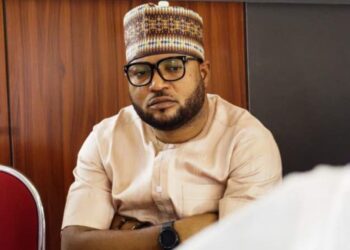The Chief of Army Staff (COAS), Lt.-Gen. Faruk Yahaya, has called on Nigerians to play active role in tackling insurgency in the country.
Yahaya made the call during a 3-Day Seminar on the Rehabilitation of Repentant Insurgents in the North East with the theme, ” Rehabilitation of Repentant Insurgents in Nigeria; Issues, Challenges and Sustainability”, on Tuesday in Abuja.
The seminar was organised by the Ministry of Humanitarian Affairs, Disaster Management and Social Development, Office of the National Security Adviser and the Nigerian Army Resource Centre.
He said the workshop was part of national effort to develop viable strategy for the management of surrendered insurgents in the North East.
According to him, the kinetic efforts of the military, especially the Nigerian army, has led to the surrender of over 87,000 terrorists and their families in the region.
He said that all those who surrendered had laid down their arms and embraced peace.
“As we celebrate this achievement, it is important we know that it has its numerous challenges on troops operational activities, logistic support and above all, the morale of those performing their constitutional roles in the region.
“There is also the issue of local populace’s acceptance of the repentant and surrendered terrorists back to their local communities, and also the effect of such mass surrender on the three tiers of government,” he said.
Yahaya said the military, alongside other security agencies had performed creditably well to ensure that the surrounded insurgents were humanely treated.
This, according to him, has been in line with the core values of the military of treating people humanely irrespective of their involvement in criminalities and killings.
He said the responsibility for the rehabilitation and reintegration of the repentant terrorists were far beyond the responsibilities of the army or security agencies.
“Here before us are these challenges staring at us and our strategic allies. Each organization and institution needs to understand the problem at hand.
“The requirement for the management of these surrendered ex-combatants while balancing same with those of the communities and individuals who are victims of their actions.
“Above all, we must understand and be ready, willing and able to perform our different roles for the benefit of the system and mankind,” the COAS said.
Yahaya acknowledged that the task was enormous and not an easy one, as all activities involved must be conducted simultaneously.
He advised terrorists still in the bush to embrace peace, warning that the armed forces remained committed to securing the nation.
The Minister of Humanitarian Affairs, Disaster Management and Social Development, Hajiya Sadiya Umar-Farouq, said the seminar was designed to identify gaps and come up with road map for interventions.
The minister, who was represented by the Permanent Secretary, Dr Nasir Gwarzo, said the seminar would also showcase the best practice in civil-security relationship in providing sustainable humanitarian intervention.
She said that the Boko Haram insurgency had brought untold hardship, destruction and loss of lives to the people of the North East and the nation at large.
According to her, it is important to understand that a non-international armed conflict perpetuated by the insurgents comes with a peculiar kind of challenge like the issue of rehabilitation of repentant and surrendered Boko Haram members.
She said that amnesty and rehabilitation had become a viable option towards peace building and strategy to end the conflict.
“Unfortunately, the perpetrators of this ghastly acts are our kindred, members of our families, friends, and neighbours.
“Therefore, it makes the issue of amnesty, rehabilitation and reintegration into the same communities they have harmed very dicey, if not handled properly.
“For example, how do you rehabilitate and reintegrate those repentant persons without upsetting the host communities or societies into which they will be reintegrated,” she said.
The minister said the federal government had sustained support to Borno Government through its “Borno Model” in handling the mass surrender of the terrorists.
The Special Adviser on Security to Borno Governor, retired Brig.-Gen. Abdullahi Ishaq, who represented Gov. Babagana Zulum, said the mass surrender of terrorists was a result of Zulum’s initiatives.
Ishaq said the state government had demonstrated strong will to end insurgency in the state and the North East region, adding that over 4,000 low risk repentant terrorists had been reintegrated back to their communities.
He urged the federal government to increase its intervention to help the state to manage the continuous surge in the number of surrendered fighters and their families.
According to him, the Borno model has encouraged the terrorists to come out enmass because of the sincerity of the government.
The Director General, Nigerian Army Resource Centre, retired Maj.-Gen. Garba Wahab, said it was important to agree on how to manage the huge number of repentant terrorists and their rehabilitation before talking about reintegration.
He said it was the responsibility of each and every stakeholder and communities to agree on how the repentant terrorists could be reintegrated.








